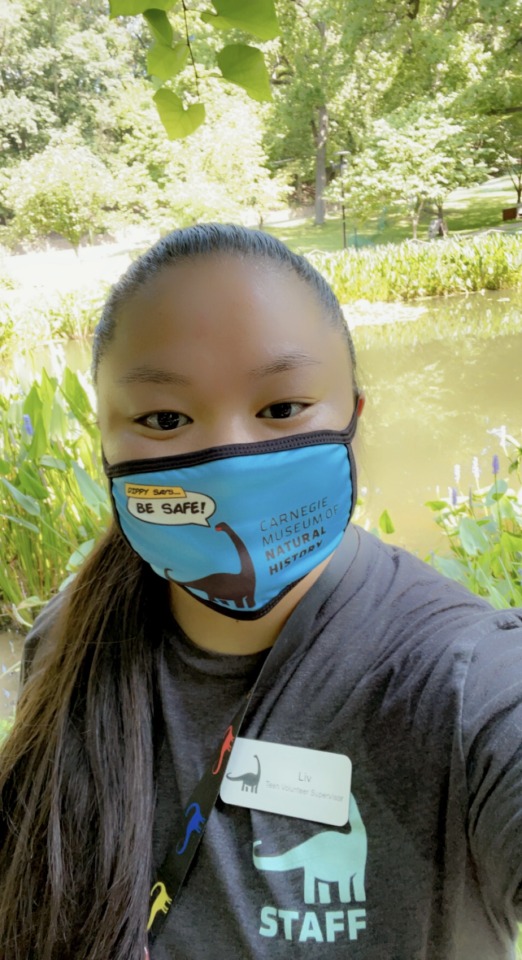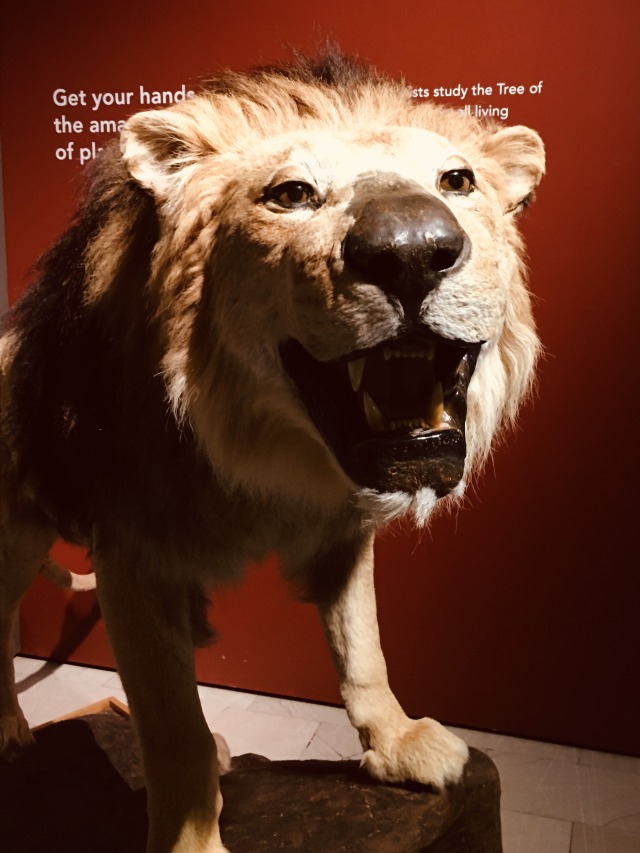by Patrick McShea

Every morning, as young participants in the museum’s summer camp and the adults accompanying them approach an outdoor sign-in table, Olivia McNulty is prepared to explain all that the coming day might hold. “I’m the first face they see, and I try to radiate positivity,” explains the recent Seton Hill University graduate, who goes by her first name’s second syllable, Liv. “I’m wearing a facemask, and checking temperatures with a handheld scanner, but I’ve also got some idea of the day’s schedule in every camp session, and I welcome questions.”
As tempting as it is to describe Liv’s comprehensive knowledge of camp operations as “second nature,” the term short-changes the unusually deep experience she brings to her current position of Senior Camp Educator. To use a baseball analogy, she is major league talent nurtured through years of development in a professional team’s multi-tiered farm system.
During the nine summers between age 5 and 13, Liv experienced camp as a camper. Due to her parents’ work schedules, an hour or two of pre-camp and post-camp care at the museum was also always part of her daily schedule. She remembers regularly experiencing “pure excitement and joy” at the museum during those long days, explaining further how she now reflects back upon her summer camp experience as an early, prolonged, and wholly positive learning intervention. “I struggled at school with a learning disability. I’m dyslexic, and at camp that was never a barrier to learning.”

When Liv aged-out of the camp participant demographic at age 14, she spent the next four summers as a teen volunteer with the program. “I knew how camp ran,” she explains, “and I wanted to emulate the camp counselors who had welcomed me for so many years. As a volunteer I started gravitating towards those children who had learning difficulties. I saw myself in some of their challenges and worked to support them.”
During the summer of 2018, Liv assumed broader camp responsibilities as a Museum Educator Assistant, a paid position that included some oversight of not just campers, but also teen volunteers. She summarizes the focus of each position as being complimentary, but drastically different. “For the teen volunteers the focus is fun – playing games, engaging the campers in those games. As an assistant educator your concerns involve safety and learning.”
This summer, Liv also holds the title of Teen Volunteer Supervisor. Her acknowledgement of greater responsibility is occasionally expressed in a motto, a saying now familiar to all the staff, volunteers, and campers she works with: “If we cannot be safe, we cannot have fun.” The statement of both warning and motivation seems particularly apt for these COVID times. It also contains evidence of all Liv learned as a psychology major at Seton Hill, and within an informal but highly effective summer training program at Carnegie Museum of Natural History.
Patrick McShea works in the Education and Visitor Experience department of Carnegie Museum of Natural History. Museum employees are encouraged to blog about their unique experiences and knowledge gained from working at the museum.
Related Content
Teacher Profile: Emmanuelle Wambach
Expanding the Scope of Environmental Education
Carnegie Museum of Natural History Blog Citation Information
Blog author: McShea, PatrickPublication date: August 4, 2021
